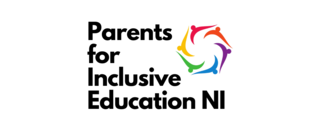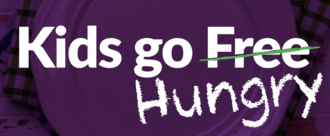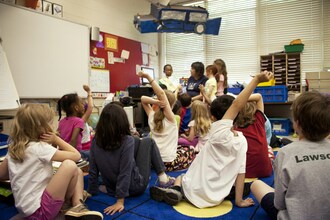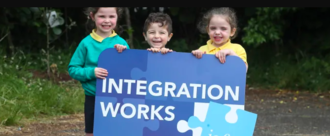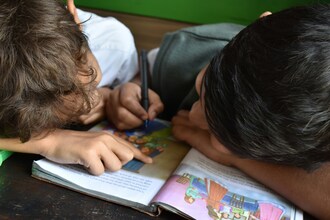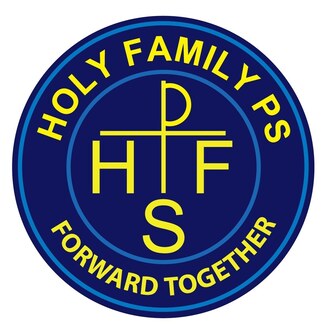- Featured
- Animal Rights
- Anti Racism
- Arts Culture
- Children
- Climate
- Corporate
- Crime
- Disability Rights
- Economic
- Education
- Energy
- Environment
- Food And Sustainable Production
- Gender Equality
- Governance And Transparency
- Health
- Housing
- Lgbt Rights
- Mental Health
- Northern Ireland
- Planning
- Privacy And Data Protection
- Rural Inequality
- Social Justice
- Trade
- Transport And Infrastructure
- Workers Rights
- More
-
Lough View Integrated Primary and Nursery School - Make Our School Crossing SafeWe care deeply about this issue because every day we — along with hundreds of other parents, carers, and children — must cross a road that becomes heavily congested at school times. This road serves two primary schools, a nursery unit and two private childcare businesses. At that specific morning time, the combined activity of school traffic, childcare drop-offs, and through-traffic results in exceptionally high road usage. This crossing point is dangerous. Visibility is severely limited: the road sits at the top of a hill on one side and bends on the other, making it difficult for both drivers and pedestrians to see what lies ahead. There have already been multiple near-miss incidents, many caused by cars dangerously overtaking slow-moving or even stationary school traffic — clear evidence that the risk is both immediate and escalating. Families repeatedly tell us they feel unsafe — not occasionally, but every single day — during school drop-off and pick-up times. The combination of heavy school and childcare traffic, general traffic, speed, and poor visibility creates conditions where an accident feels not just possible, but imminent. A safe crossing is no longer simply a reasonable request; it is an urgent and essential measure needed to protect our children and our entire school community. LVPC Lough View Parents' Council1 of 100 SignaturesCreated by Lough View Parents' Council
-
We demand Inclusive Religious Education for all NI’s ChildrenAll of our children deserve to feel valued, included and respected in their schools. As parents and community members who care deeply about the education, well-being and safety of our young learners, we have seen how current RE provision in NI fails them. We see how children face discrimination, exclusion, and stigmatisation as a result of these failings and the burden placed on families to separate their children from their peers, or risk their indoctrination in a belief system that is not their own. Following the Supreme Court judgment in JR87 which confirmed infringement of our children human rights, we demand reform. Every child, regardless of their religious or non-religious backgrounds, should have the right to an education that values and respects their individuality, personal beliefs, and background, and helps them develop the skills they need to understand, value and respect those from different walks of life. We are calling upon Education Minister Paul Givan to urgently prioritise and ensure: 1. Delivery of an updated ECHR compliant RE curriculum designed by a pluralistic and interfaith panel of suitably qualified and experienced educators; 2. Inspection of RE by the Education and Teaching Inspectorate in line with the rest of the curriculum; and 3. An immediate pause on access to pupils by external organisations in order to deliver religious education or collective worship during core school hours until a new, rights-respecting curriculum is in place. No child should face stigma at school. No child should be othered. No child should be excluded. All of our children deserve better. Please sign this petition to urge the Minister for Education to prioritise children’s rights and ensure an inclusive religious education for all.1,338 of 2,000 SignaturesCreated by Parents For Inclusive Education NI
-
Stop the school meal price increaseReceiving a nutritious, hot meal in school has huge benefits for children and young people. Nutrition is crucial for concentration, learning and physical health. School meals are particularly important for children from low income families, helping them get a decent start in life and tackling inequality. Unfortunately, many families on low incomes do not qualify for Free School Meals and so the cost of paying is already a struggle. An increase of 20% will cause a lot of stress and could make it impossible for some families to keep buying meals for their children in school. As the cost of living continues to rise and the Northern Ireland Executive is promising to tackle poverty, it is appalling that the Education Authority would be forced to increase the cost of school meals. At a time when the UK Government is increasing its investment in school meals in England and expanding access to Free School Meals, families here in NI should not have to face higher costs. We call on the Education Minister Paul Givan to fund school meals as a priority in the education budget and stop this price increase.3,642 of 4,000 Signatures
-
Extend St Teresa's Primary School Speech and Language ProvisionChildren at St Teresa’s Primary School currently receive valuable speech and language support up to Primary 4. However, once pupils move into upper primary years, they are required to transfer to other schools outside their local area in order to continue accessing these essential services. This situation places unnecessary stress on families and disrupts children’s learning, friendships, and sense of belonging. Every child deserves the opportunity to thrive and communicate confidently in a familiar, supportive environment — without the hardship of leaving their community.553 of 600 SignaturesCreated by Brenda McKernan
-
Comhlámh le Naíscoil na Seolta/In solidarity with Naíscoil na SeoltaIn Northern Ireland, no matter who we are, our everyday speech is littered with Gaelic and Scots words. Many of the names of our towns and cities are derived from Irish, and it was historically spoken by many Protestant people across Ulster. It's wrong that a vile social media campaign has led this importance educational resource to move premises. Shared spaces where we learn from each other are vital for our peace-building and our quality of life. We offer our support and respect and stand firmly with all those involved in Naíscoil na Seolta.1,437 of 2,000 SignaturesCreated by Nicola Browne
-
Make Integrated Education A PriorityIt's been 40 years since the first integrated school was started here, but in 2022 only 7.5% of schools here are integrated schools - bringing together children from all backgrounds - Catholic, Protestant and other. But there is overwhelming demand: 71% of people here believe our children should be educated together. Stormont has commissioned a new Independent Review of Education that could change everything - but we need you to tell them integrated education matters to you so that they make recommendations to promote integrated education! Now's your chance to speak up! Email the panel members now and tell them that you want to live in a future where all our children are educated together, promoting reconciliation.264 of 300 SignaturesCreated by Adam McGibbon
-
First & Deputy First Minister: Restore funding for Integrated SchoolsGenerations of students who went to Integrated schools grew up getting their education in drafty, leaky portable classrooms. This must end. First & Deputy First Minister - Restore the funding. You made a promise. Keep it.362 of 400 SignaturesCreated by Adam McGibbon
-
Doug Beattie: Don't block progress on Integrated EducationDoug Beattie, the UUP Leader, said in January that "Northern Ireland has been blighted by division.. and yet we don't take the brave steps to try and deal with that division...we need to end educational apartheid which is taking place here in Northern Ireland." But his party is opposed to the Bill and may join the DUP in using this undemocratic Assembly mechanism to block the Bill. Doug and his party need to rule out using a Petition of Concern to block the Bill.632 of 800 SignaturesCreated by Adam McGibbon
-
Support the Integrated Education BillOnly 7.5% of schools here are integrated schools - bringing together children from all backgrounds - Catholic, Protestant and other. All integrated schools here have been fought for and demanded by parents. But this bill could really change things. It would ensure that every new school opened in Northern Ireland from now on is integrated. And it would strengthen the Department for Education's legal duty, requiring the Minister to be held to account for their performance in promoting integrated education. But some parties want to water the bill down. If we flood the consultation with responses, we can make sure that doesn't happen. Photo: Belfast Live660 of 800 SignaturesCreated by Adam McGibbon
-
Doug Beattie - keep your promises on Integrated EducationRight now, the Integrated Education Bill is going through the NI Assembly - but those opposed to integrated education are misleading schools and parents, telling them the Bill will harm existing schools - it won't. The Bill can pass if enough parties support it - and what the Ulster Unionist Party (UUP) do will be crucial. Last month, Doug Beattie, the UUP Leader, signalled his support for integrated education and said "Northern Ireland has been blighted by division.. and yet we don't take the brave steps to try and deal with that division...we need to end educational apartheid which is taking place here in Northern Ireland." We need Doug and his MLAs to support the Integrated Education Bill, and resist attempts by the Bill's opponents to sign a "Petition of Concern" - an Assembly motion that would doom the Bill. Write now and tell Doug how you feel!587 of 600 SignaturesCreated by Adam McGibbon
-
Department of Education: Create a REAL Action Plan for Integrated EducationIn 2023, 25 years after the Good Friday Agreement, only 8% of NI kids go to integrated schools despite huge demand. Right now, the Department of Education has a public consultation on their 'Action Plan' and anyone can comment. Tell the Department of Education - we want a REAL Action Plan for integrated education.535 of 600 SignaturesCreated by Adam McGibbon
-
New building urgently required for Holy Family Primary School!Holy Family is a vital cornerstone of the community, playing a central role in the lives of local families. The current conditions jeopardise both the children's health and ability to learn. Without urgent attention, these issues will only worsen, further compromising the wellbeing of the pupils and staff.378 of 400 SignaturesCreated by Clare Loye
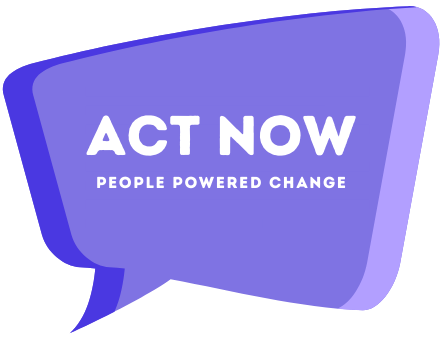.png)
